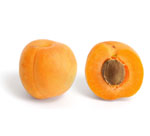Postprostatectomy Established Stress Urinary Incontinence Treated With Duloxetine
Posted by: admin on: June 16, 2011
Stress incontinence post radical prostatectomy is a common sequel. Where conservatory methods & surgery are mostly done here is a study of duloxetine a drug which could be utilized to our benefit for the same.
Team@CMHF
OBJECTIVES: To evaluate the efficacy of duloxetine to treat stress urinary incontinence, 1 of the most frequent complications after radical prostatectomy. Conservative measures and surgery are well-established treatments. However, drug treatment could be an intermediate option.
METHODS: All patients had>1 year of follow-up after radical prostatectomy to avoid interfering with the natural recovery period (established stress urinary incontinence). Continence was measured by the average daily use of pads and the International Consultation on Incontinence Questionnaire-short form. The initial dose of duloxetine was 30 mg once daily and was increased to 60 mg/d. Drug treatment was maintained for 9 months.
RESULTS: At the end of the follow-up period, 74% and 57% of the patients had a reduced International Consultation on Incontinence Questionnaire-Urinary Incontinence-short form score and a decrease in the number of pads used daily, respectively. Of the 68 patients, 32 (47%) presented with some side effects and 17 patients stopped the treatment because of adverse effects (25%).
CONCLUSIONS: Our results suggest that duloxetine is a possible alternative treatment of postprostatectomy established stress urinary incontinence. The continence improvement results were mild and conditioned in part by the frequency of the side effects. Provided that duloxetine does not preclude later continence surgery and the benefits are observed at the first visit, we believe it can be a treatment option for selected patients.
Ref: http://www.docguide.com/postprostatectomy-established-stress-urinary-incontinence-treated-duloxetine
For: Allopaths
Search
- drchasrani: Difficult to get such a data, authenticated at that. Try Times of India online library
- rakesh pore: hi, where can i get genuine information about "10 most common drugs sold in india?" i want it for a local project
- nilesh dutta: sir, Plz give detail about MBA Sports Management Thanks and Regards


Leave a Reply